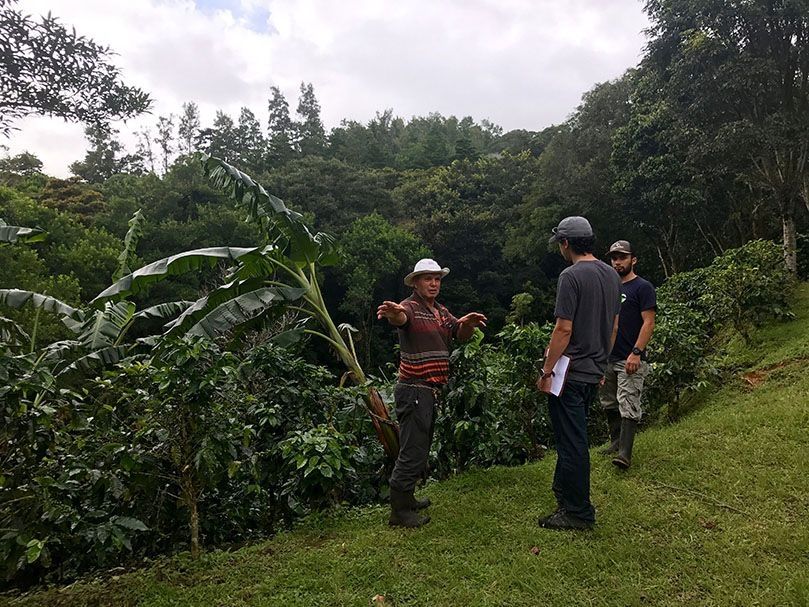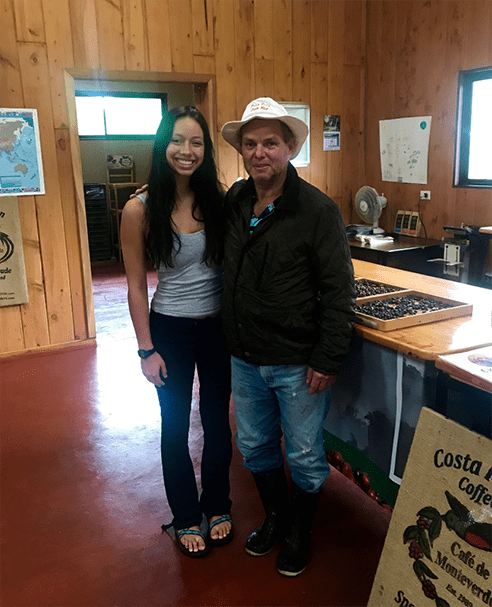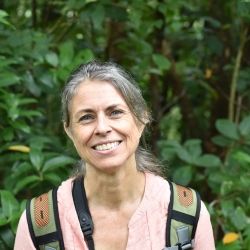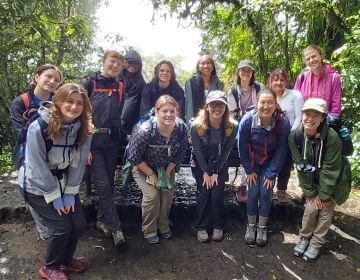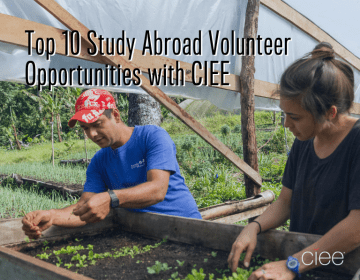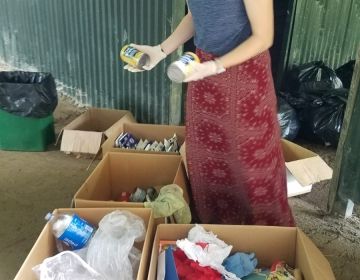Advancing sustainable coffee production practices at LIFE farm in Monteverde, by Mackenzie Agosta (Arizona State University, School of Sustainability)
This past October I was an intern at LIFE farm in Monteverde, Costa Rica. LIFE is a family owned coffee farm that strives to produce environmentally friendly coffee. They are unique from other coffee farms because they make their own organic compost on site from coffee skins and animal waste. Some of their goals include using less synthetic fertilizer for coffee production in order to reduce costs and greenhouse gas emissions, as well as utilizing their organic compost as fertilizer for the coffee plots.
In order to meet these goals I created an updated map of the farm; a database that consisted of physical characteristics and management history of all thirty-eight coffee plots; and a protocol for an experimental design to test the effectiveness of organic fertilizer as a replacement for synthetic fertilizer.
I started by first recording data collected from interviews I conducted on the farm in English and Spanish. This data includes the farm’s land use history, physical characteristics of the plots, and varying management practices. Using this data, I then organized it into a database the farm could use as a template for future management strategies. I also created an updated version of the farm’s map for a better visual representation of the farm layout, as well as for educational purposes for farm visitors. Using the updated map and database, I then created a protocol describing an experimental design the farm could use in order to test whether the addition of organic compost could compensate for the reduction of synthetic fertilizer. I presented this protocol to the owners of the farm and they are planning on conducting the experiment on four coffee plots this upcoming March, when the next coffee season begins.
I am currently a third-year student working towards a Bachelor of Science Degree in Sustainability, so this internship with LIFE gave me the opportunity to put my knowledge on this subject and background in science to the test.
All of these skills were newly acquired; including developing my Spanish skills, knowledge on the coffee production process, creating a database in Excel, statistical data analysis, and designing an experiment.
My biggest contribution to the farm was first the database, because previously the farm didn’t have any written documentation on how the farm was managed. This database can be used on LIFE and other farms as a more systematic way of managing coffee plots and for guidance on future management strategies.
My next big contribution was the protocol for experimental design. This achieves their goal of utilizing their use of organic compost, as well as reducing the use of synthetic fertilizer and therefore reducing their greenhouse gas emissions. No matter what the results show, the experiment will give LIFE insight on how to better manage their organic compost and coffee plots. LIFE’s results can also be a model and inspiration to other coffee farms as a way to produce more sustainable coffee.
Working on LIFE farm provided me with substantial hands-on knowledge and guidance on how coffee is produced and all the challenges associated with it. People around the world enjoy coffee every morning and normally don’t think twice about where it comes from, how it was grown, or its impacts on the environment. It was extremely rewarding being behind the scenes and potentially contributing to the added environmental deliciousness of your next sip of coffee.
Related Posts
Happy Earth Day: Today and Every Day
Happy Earth Day! Every April 22, this global event comes around to remind us how precious our planet is, what sustainable efforts we can make to protect Earth, and that... keep reading
Top 10 Study Abroad Volunteer Opportunities with CIEE
Have you ever wondered if you could volunteer abroad? Perhaps you're looking into study abroad programs that provide international volunteer opportunities. If you’re itching to study abroad and truly make... keep reading
Recycling Internship with ADI San Luis
Written by Maya Peske (Cornell College), Internship in Sustainability and the Environment The road from San Luis up to Monteverde is well known by all of the people in the... keep reading
